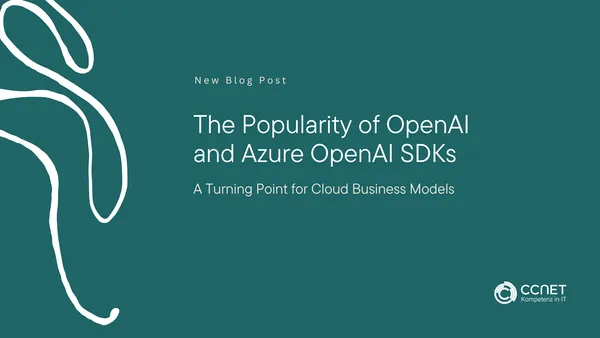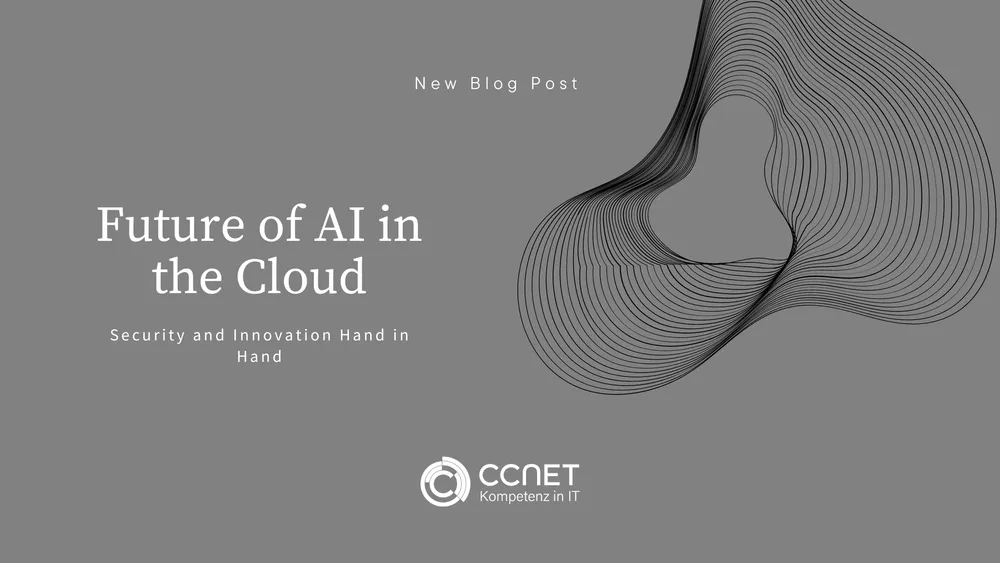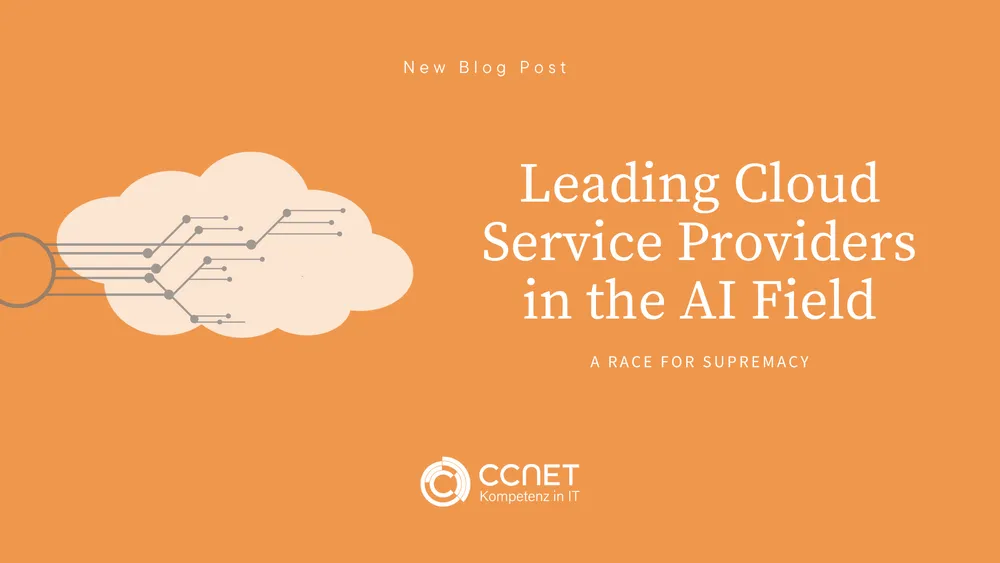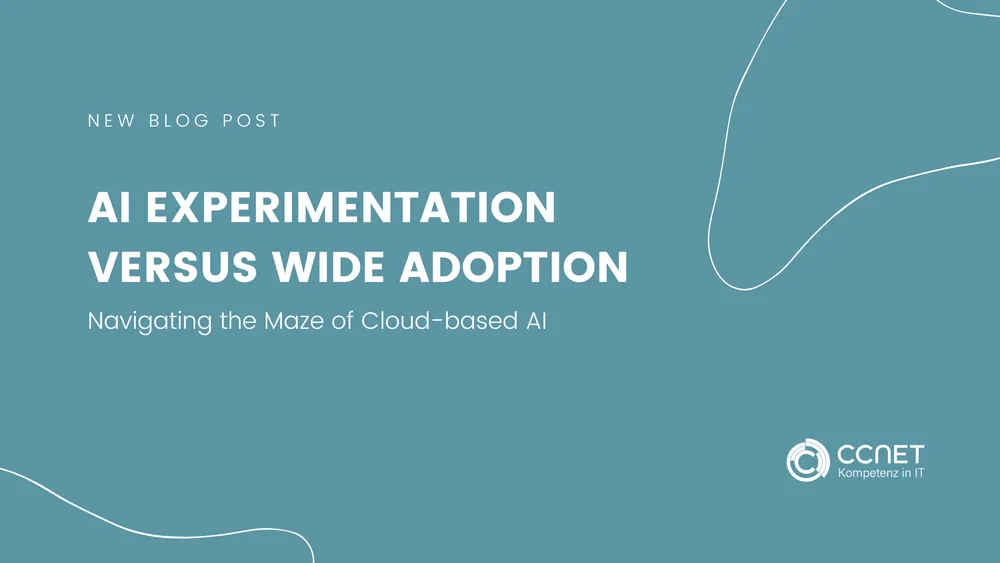
CCNet
Aug 5, 2024 • 3 min read

The Popularity of OpenAI and Azure OpenAI SDKs: A Turning Point for Cloud Business Models
In cloud technology, the integration of Artificial Intelligence (AI) has ushered in a new era. Particularly, the OpenAI and Azure OpenAI SDKs are at the forefront of this revolution, enabling seamless and powerful integration of generative AI models into cloud environments. This blog sheds light on the increasing popularity of these tools, their significance for cloud application development, and the resulting opportunities and challenges for businesses.
An Overview of OpenAI and Azure OpenAI SDKs
OpenAI, renowned for its groundbreaking AI models such as GPT-3, DALL-E, and Whisper, has collaborated with Microsoft to develop the Azure OpenAI SDKs. This partnership allows developers to directly integrate OpenAI's advanced AI models into their cloud applications, enabling a wide range of applications, from text generation to image processing.
Why OpenAI and Azure OpenAI SDKs are So Popular
The popularity of OpenAI and Azure OpenAI SDKs can be attributed to several key factors:
Simplicity and Accessibility
The Azure OpenAI SDKs make it easy for developers to access OpenAI's powerful AI models and integrate them into their applications. This lowers entry barriers and promotes innovative applications across a variety of industries.
Versatility and Performance
From automated content creation to language translation and complex data analysis, these SDKs enable an impressive array of applications. They provide companies with the opportunity to enhance their services and develop new business models.
Security and Compliance
In collaboration with Microsoft, the Azure OpenAI SDKs ensure high security standards and compliance with data protection regulations, a crucial factor for companies in regulated industries.
Impacts on Cloud Business Models
The integration of OpenAI and Azure OpenAI SDKs into cloud applications opens up new horizons for product development and customer interaction for companies. They enable unprecedented personalization of services and automation of complex processes, leading to more efficient operations and improved customer experiences.
Personalization to a New Level
With advanced AI models, companies can generate customized content and recommendations tailored to the individual needs and preferences of their customers. This contributes to stronger customer engagement and higher conversion rates.
Automation of Complex Tasks
From responding to customer inquiries to generating reports, OpenAI's AI models can automate a variety of tasks that previously required human intelligence. This results in significant efficiency gains and cost savings.
Challenges and Considerations
Despite the impressive capabilities offered by OpenAI and Azure OpenAI SDKs, companies face challenges, particularly in the areas of data security and ethical use of AI. Ensuring that AI models are used responsibly and do not violate sensitive data requires careful planning and the implementation of robust security protocols.
Conclusion
The popularity of OpenAI and Azure OpenAI SDKs marks a turning point in the evolution of cloud technology, clearly indicating that its future is closely tied to the development and integration of AI models. While these tools offer incredible opportunities, they also require responsible handling to ensure the security and ethics of AI usage. For companies willing to embrace these challenges, new avenues are opening up to drive innovation, gain competitive advantages, and ultimately increase value for their customers.
FAQ about Artificial Intelligence
What are OpenAI and Azure OpenAI SDKs, and what are they used for?
The SDKs enable powerful AI models such as GPT-3 to be integrated directly into cloud applications. They support functions such as text generation, image processing, and translations.
Why are Azure OpenAI SDKs particularly popular with developers?
They offer easy access to advanced AI technology, are versatile, and facilitate the development of innovative cloud applications.
What advantages do OpenAI models offer for cloud business models?
They enable the automation of complex processes and the personalization of offers, which can increase efficiency and customer satisfaction.
How can companies use OpenAI to personalize AI content?
The models analyze user behavior and generate individually tailored recommendations or content, which improves customer loyalty.
Which tasks can be automated with OpenAI models?
Examples include automatic customer communication, report generation, and data analysis—tasks that previously required manual processing.
What are the risks associated with using OpenAI and Azure OpenAI SDKs?
Challenges lie primarily in the areas of data protection, ethical use, and protection against misuse of data.


